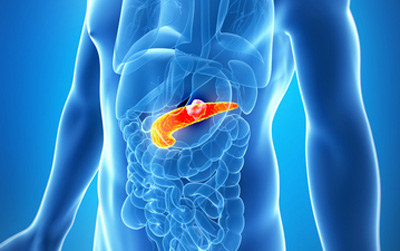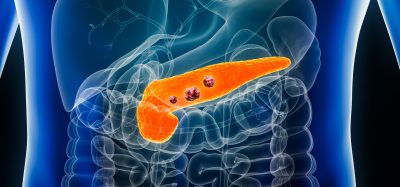OncoQR ML’s TYG100 induces strong immune response in pancreatic cancer
Posted: 23 February 2016 | Victoria White | No comments yet
In a highly relevant non-human primate model TYG100 was able to induce a strong and clinically relevant immune response…


In a preclinical trial in a highly relevant non-human primate (NHP) model OncoQR ML’s pancreatic cancer vaccine TYG100 was able to induce a strong and clinically relevant immune response.
This immune response occurred in all treated individuals within just 2 weeks after a single vaccination. No side-effects were observed.
The trial also showed that concomitant standard chemotherapy (Gemcitabine) does not impair the immune response in a relevant way. This finding shows that treatment with TYG100 can be initiated in parallel to chemotherapy. Since pancreatic cancer is an extremely aggressive disease where the average time from diagnosis to death is measured in months, not years, an immunotherapy that can be initiated together with, not after, chemotherapy, and that elicits the desired immune response very fast, would fundamentally improve the treatment of pancreatic cancer patients.
In this trial, OncoQR says a clear correlation between dose and immune response was observed. The trial thereby extends what has already been established in other trials that OncoQR ML conducted in different indications with vaccines based on the same S-TIR technology platform technology as TYG100: the completely controllable modification of the patient’s immune system by suspension of the relevant checkpoint control.
“We are extremely excited about the characteristics that TYG100 has shown in this trial in a pancreatic cancer model”, commented Dr Geert C. Mudde, CSO of OncoQR ML. “For an immunotherapy to provide maximum clinical value in an aggressive disease such as pancreatic cancer, the immune response must be really strong and be achieved really fast. And it is critical that the suspension of checkpoint control – which allows the immune system to mount a powerful attack against tumour cells as it does not consider them as ‘own’ cells – is reversible. The data from our recent trials suggest that TYG100 has just these characteristics.”
“The results from this trial with TYG100 show that this therapy has the potential to bring a huge benefit to patients suffering from a fast-killing disease”, commented Christof Langer, MBA, CEO of OncoQR ML. “With all the necessary in-vivo tests concluded and Orphan Drug Designation for TYG100 granted by the FDA, we are now seeking strong partners for the fast track clinical development of this exciting oncology product”, Langer concluded.
TYG100 may elicit immune responses several orders of magnitude stronger than G17DT
TYG100 is designed to elicit an immune response against gastrin (G17). This target was selected because it was well established in clinical phase III trials with an inferior predecessor vaccine G17DT, that an appropriate immune response against G17 significantly prolongs survival by several months. While this survival benefit compares very favourably against current standard chemotherapy (Gemcitabine), in said clinical trials the required immune response was only achieved after several vaccinations and only in a statistically too small subset of patients. The correlation between immune response against G17 and survival benefit was appreciated by drug authorities, but the overall immunogenicity was deemed not sufficient for market approval.
By contrast, TYG100 could consistently elicit a clinically relevant immune response which is several orders of magnitude stronger than even in the most favourable cases in the clinical trials in pancreatic cancer mentioned. In contrast to G17DT, TYG100 was confirmed to be immunogenic in all individuals tested just 2 weeks after a single vaccination and did not show any side effects.
The data from the study of TYG100 thus showed that OncoQR ML’s experimental immunotherapy does elicit a strong and completely controllable immune response against pancreatic cancer in all individuals vaccinated, very fast, and even under concomitant chemotherapy.







